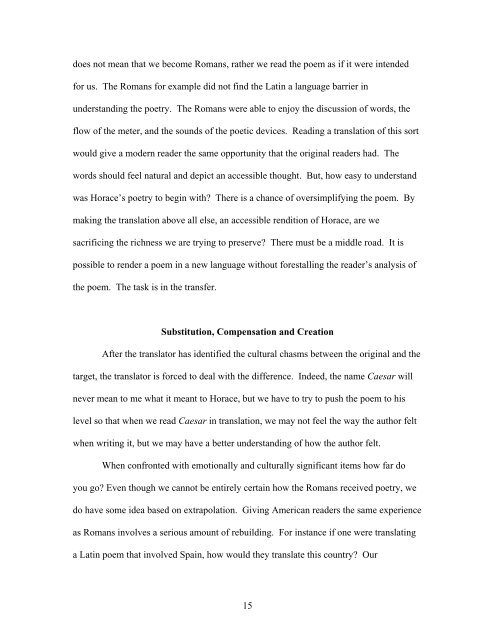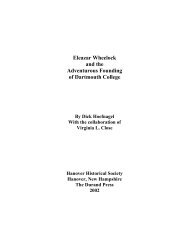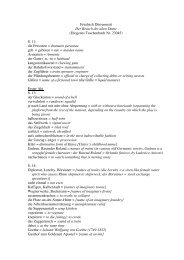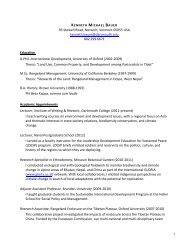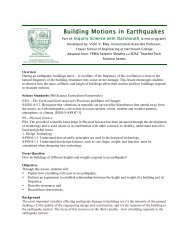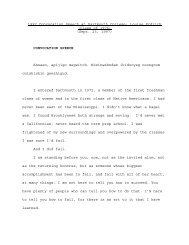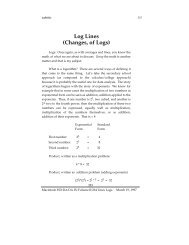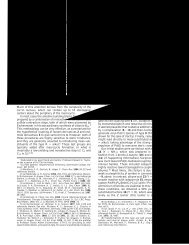A Log Cabin Out of Stone: - Dartmouth College
A Log Cabin Out of Stone: - Dartmouth College
A Log Cabin Out of Stone: - Dartmouth College
You also want an ePaper? Increase the reach of your titles
YUMPU automatically turns print PDFs into web optimized ePapers that Google loves.
does not mean that we become Romans, rather we read the poem as if it were intended<br />
for us. The Romans for example did not find the Latin a language barrier in<br />
understanding the poetry. The Romans were able to enjoy the discussion <strong>of</strong> words, the<br />
flow <strong>of</strong> the meter, and the sounds <strong>of</strong> the poetic devices. Reading a translation <strong>of</strong> this sort<br />
would give a modern reader the same opportunity that the original readers had. The<br />
words should feel natural and depict an accessible thought. But, how easy to understand<br />
was Horace’s poetry to begin with? There is a chance <strong>of</strong> oversimplifying the poem. By<br />
making the translation above all else, an accessible rendition <strong>of</strong> Horace, are we<br />
sacrificing the richness we are trying to preserve? There must be a middle road. It is<br />
possible to render a poem in a new language without forestalling the reader’s analysis <strong>of</strong><br />
the poem. The task is in the transfer.<br />
Substitution, Compensation and Creation<br />
After the translator has identified the cultural chasms between the original and the<br />
target, the translator is forced to deal with the difference. Indeed, the name Caesar will<br />
never mean to me what it meant to Horace, but we have to try to push the poem to his<br />
level so that when we read Caesar in translation, we may not feel the way the author felt<br />
when writing it, but we may have a better understanding <strong>of</strong> how the author felt.<br />
When confronted with emotionally and culturally significant items how far do<br />
you go? Even though we cannot be entirely certain how the Romans received poetry, we<br />
do have some idea based on extrapolation. Giving American readers the same experience<br />
as Romans involves a serious amount <strong>of</strong> rebuilding. For instance if one were translating<br />
a Latin poem that involved Spain, how would they translate this country? Our<br />
15


